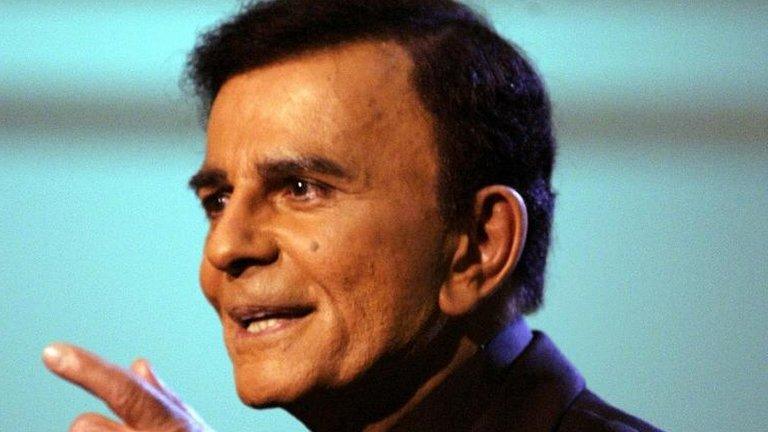European rights court: Keep tetraplegic on life support
- Published
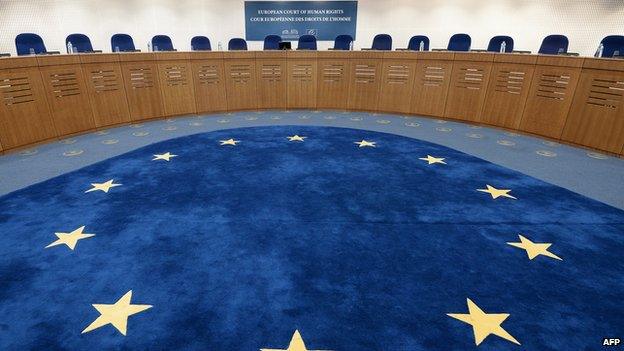
Strasbourg has the power to implement urgent measures if there is an "imminent risk of irreparable harm"
The European Court of Human Rights says French doctors must keep treating a man who has been in a coma for six years.
Vincent Lambert, 39, was left a tetraplegic after a motorcycle accident. His family is split over whether he should be kept alive.
On Tuesday, France's highest court, the Council of State, ruled in favour of ending Mr Lambert's life support.
The case is seen as unprecedented in France, where euthanasia is illegal though doctors can withdraw care.
The move by the European Court of Human Rights suspends the French court's decision. Mr Lambert will be kept alive while the European court considers a full review of the case.
The European court has the power to implement urgent, temporary measures "where there is an imminent risk of irreparable harm".
Mr Lambert's wife and his doctors want to cut off intravenous food and water. But his parents - both said to be devout Roman Catholics - appealed to the European court because they want him to be kept alive.
Doctors in France are entitled to withdraw care from a patient under a 2005 law that says life should not be prolonged "artificially" through "unnecessary or disproportionate treatment".
President Francois Hollande aims to change the law next year to allow "medical assistance to end one's life in dignity".
When doctors treating Mr Lambert in hospital in Reims in north-east France decided last year that feeding and hydration through tubes should stop, his wife Rachel and some of his brothers and sisters agreed.
However, his parents, a sister and a half-brother challenged the decision to end his life and went to court. Mr Lambert's mother is said to be a devout Catholic.
The doctors said that he had minimal consciousness and no way of understanding, despite being able to feel pain and move his eyes.
One key moment was when he refused to allow his mouth to be wiped, which prompted the medical team treating him to believe he no longer wished to live.

When a patient dies because medical professionals either do not do something necessary to keep the patient alive, or stop doing something that keeps patient alive. Examples are
switching off life-support machines
disconnecting a feeding tube
not carrying out a life-extending operation
not giving life-extending drugs

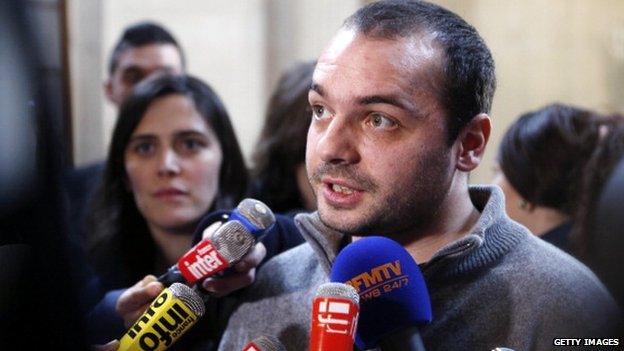
Vincent Lambert's nephew backs the decision to end treatment but other members of the family disagree
An administrative court had ruled in favour of the parents, concluding that their rights had not been respected.
After months of legal argument that left the family torn over Mr Lambert's fate, his wife took the case to the Council of State, whose public rapporteur Remi Keller then investigated the case with the help of three experts in neuroscience.
Mr Keller concluded that there was no hope either of recovery or of food and hydration having any positive effect.
He also said the majority of medical specialists, as well as members of Mr Lambert's family, were behind the decision to stop feeding him.
Mr Lambert's wife had insisted that he had stated on several occasions that he had no wish to live in a "state of dependence", should something happen to him.
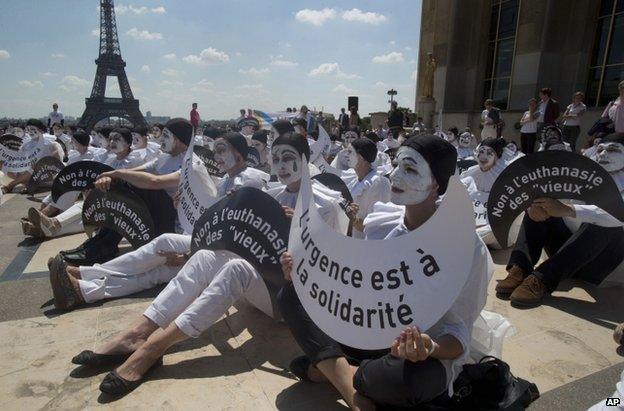
Anti-euthanasia protesters in Paris on Tuesday
On Tuesday, activists against euthanasia for old people held a protest in Paris.
Dressed as mime artists, they held placards which read "No euthanasia for 'the old'."
- Published25 June 2014
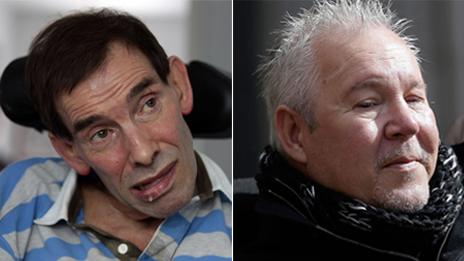
- Published20 June 2014
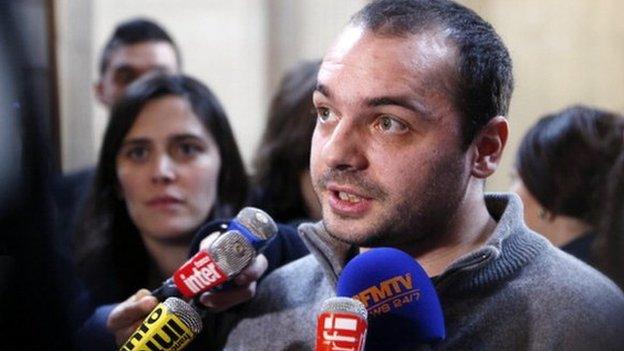
- Published26 January 2014
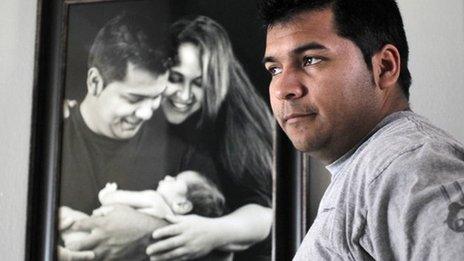
- Published24 November 2012
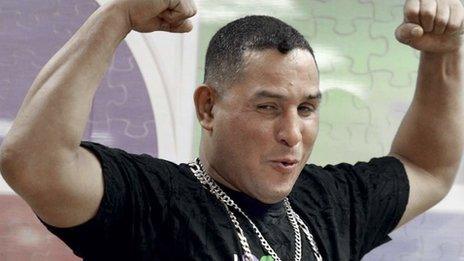
- Published15 June 2014
